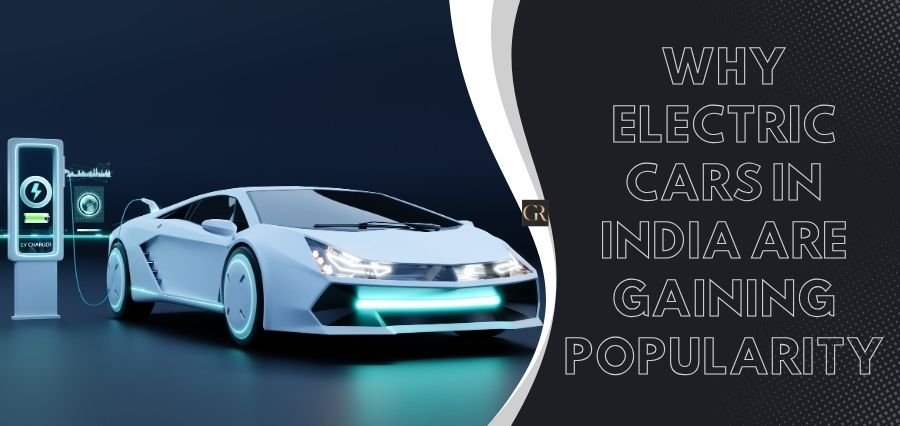Electric Cars in India are picking up speed as the nation makes a move towards green mobility. With growing environmental awareness, fuel costs rise, and the government offers incentives, giving up on internal combustion engine to electric vehicles (EVs) is no longer a wave but a trend. The industry has seen mad growth in the recent past as companies rolled out new models and cut prices for Indian consumers.
The Increasing Rate of Electric Cars in India
The cause of electric cars in india adoption has been fueled by some hard-driving individuals. There is initial state and central government initiative in the form of programs like FAME (Faster Adoption and Manufacturing of Hybrid and Electric Vehicles). Then come municipal-level tax breaks and municipal low-emission zones that are persuading increasing numbers of citizens to go electric.
In Delhi-based Uttar Pradesh-based, Mumbai-based Maharashtra-based, car wealthier Bengaluru-based cities, charging stations are augmenting infrastructure in better steps by better step, strengthening support for mass adoption of electric cars in india. The transport network is also keeping fueling burgeoning demand, with EVs becoming an intelligent eco-friendly option as well as an economically viable option.
What Makes the Best Electric Car in India?
While selecting the best electric car in india, there are certain parameters that are kept in mind—road range, battery life, features, brand value, and cost. Customers today expect EVs at par with or superior to their petrol brethren.
Models such as Tata Nexon EV, MG ZS EV, and Hyundai Kona are the top-rated electric vehicles in the battle for the best electric car in india crown. These models have cutting-edge features such as quick charging, regenerative braking, and longer battery range—perfect for city road driving and intercity commutes.
Understanding Electric Car Price in India
The electric car price in india is extremely variable depending on the brand and model. The budget-friendly EVs such as the Tata Tiago EV are approximately ₹8.5 lakhs, while the high-end ones such as the BYD Atto 3 or Kia EV6 are over ₹30 lakhs.
Government incentives and lower operating expenses are bridging the gap, and the electric car price in india is within reach of a larger segment of buyers. EVs are also maintenance-free, and that translates to cost savings in the long run, which is a compelling offer for risk-averse Indians.
Electric Car in India: A Cultural and Economic Shift
An electric car in india is not a car; it’s a mindset. Indian consumers are becoming more and more eco-friendly and looking to reduce their carbon footprint. This is also assisted with awareness campaigns, social media campaigns, and evolving policy landscape.
With finance schemes, leasing deals, and battery-swapping plans, the electric car in india is now a status symbol of new-age chic, especially for young consumers who want style and social responsibility.
Technology Drives the EV Revolution
Innovation drives the EV ecosystem. From AI-driven infotainment, to IoT-based real-time diagnostic capabilities, electric cars in india are setting new thresholds for automotive innovation. Battery technology, in terms of lithium-ion cell technology, has changed electric vehicle performance and durability.
Car manufacturers are also investing in research and development to make them compatible with quick-charging, another hurdle to mass market penetration. Some electric cars in india already have charging at 80% in one hour, reducing the common range anxiety amongst customers.
Challenges Facing the EV Industry
While there is expansion, there are some challenges. India’s EV market still has a lag in the sphere of charging stations, particularly in tier-2 and tier-3 cities. Second, the initial cost, while the subsidy is being offered, remains a restraint for price-conscious consumers.
But another important challenge is battery recycling and disposal. As there are more EVs, there comes the requirement for sustainable end-of-life treatment options for electric cars in india batteries. All of these issues need to be addressed in order to be successful in the long run.
Consumer Awareness and Future Trends
Consumer awareness and education are playing a big role in the future of electric cars in india. Awareness drives, influencer marketing, and government outreach efforts are making EV technology user-friendly and boosting confidence levels.
The future wave of innovations will be solid-state batteries, solar cars, and greater integration with smart cities. With growing demand and tech development, the best electric car in india is going to be smarter, more efficient, and economical.
Conclusion: A Country in Motion
India is irreversibly on the path to becoming an e-mobility world leader. From an expanding choice, wise policies, and green consumers, electric cars in india are not merely the car of tomorrow—but the car of today.
While the nation grows older, technology innovation-public-private partnership will be that which drives all electric car in india to a cleaner, greener future for the nation.
Read Also: Richest Person in Gujarat 2025: Secrets Behind Billionaire Growth




